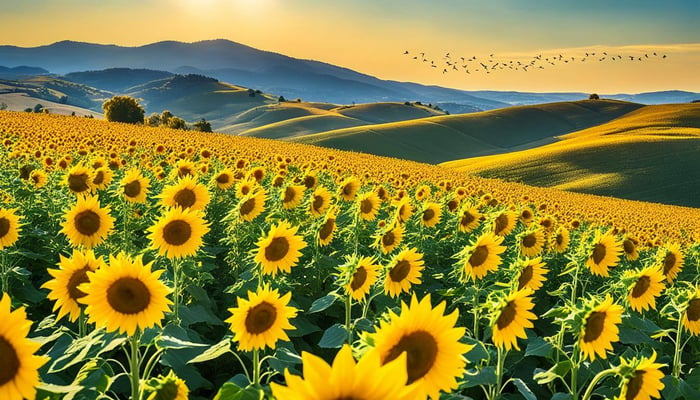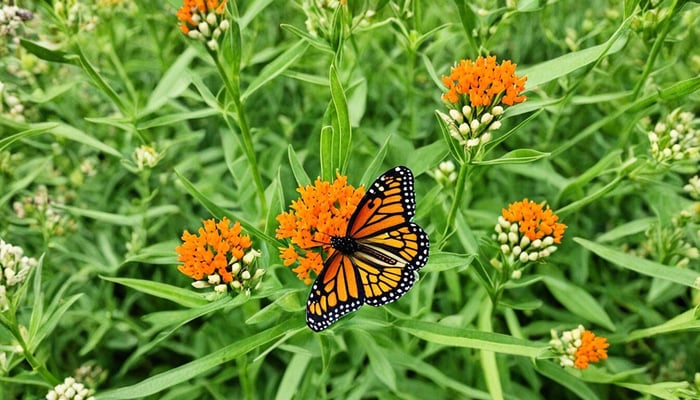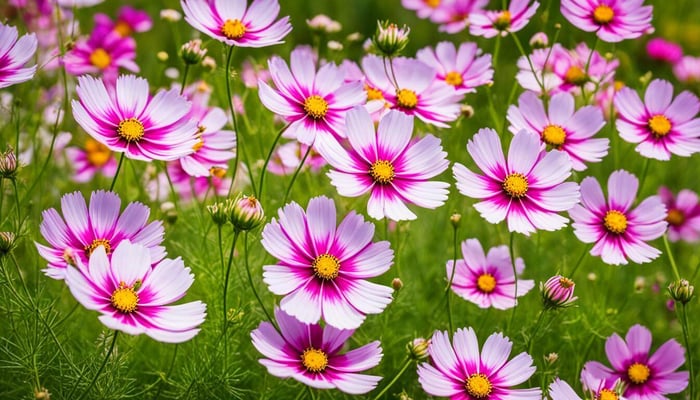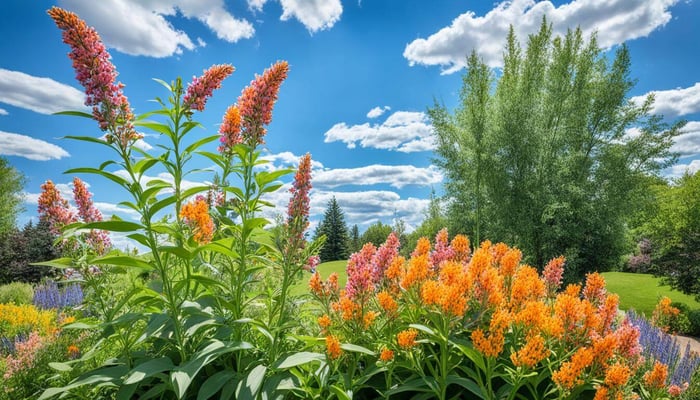As I tuck the last sunflower seed into the rich earth, the anticipation of vibrant yellow petals sways in my mind. There's something genuinely magical about growing sunflowers beyond their stunning aesthetics. In nurturing these towering beacons of joy, I've uncovered a profound truth: the benefits of growing sunflowers reach far into the heart of environmental health. From my garden to the expansive fields, these golden giants are a delight for the eyes and vital pillars for the environment. But how do sunflowers help the environment? Join me as we uncover the surprising environmental benefits of sunflowers and sunflower seeds, one smile at a time.
Sunflower Seeds For Planting | 8 Variety Pack

$15.95
8 Sunflower Seeds Variety Pack – Heirloom, Non-Hybrid, Open-Pollinated, Non-GMO Bring vibrant beauty, pollinator activity, and unique diversity to your garden with our 8 Sunflower Seeds Variety Pack! This premium collection offers an exceptional mix of heirloom sunflower seeds that… read more
Key Takeaways
- Discover the multiple environmental advantages of cultivating sunflowers from seed.
- Understand the role of sunflowers in promoting soil health and biodiversity.
- Learn how sunflowers participate in carbon sequestration and pollution control.
- Explore the impact of sunflowers on local ecosystems and wildlife habitats.
- Unveil the joy and therapeutic benefits of adding sunflowers to your garden.
- Garner insights into sunflowers as a symbol of environmental stewardship.
The Joy of Sunflowers in Your Garden
Every morning, stepping out into my garden graced with the towering presence of sunflowers, I can't help but feel a surge of happiness. There's an undeniable joy that these radiant flowers infuse into a garden space. Their golden heads, following the sun's arc across the sky, are not just delighting my senses but also benefiting my garden in ways that deeply connect with sunflowers for environmental conservation.
As a gardener, I recognize that my sunflower patch does more than brighten the landscape; it is a hub for sunflowers and biodiversity. The buzz of bees and flutter of butterflies amidst the sunflowers are clear indicators of a thriving ecosystem at work right in my backyard. It's heartening to think that by simply planting sunflowers, I am contributing to the health of our local ecology in an aesthetically pleasing way. Their ability to attract various pollinators underscores their role in maintaining biodiversity.
The impact of sunflowers extends below ground as well, considering sunflowers and carbon sequestration. Their deep roots help break down organic materials, improving soil health and aiding carbon retention. This supports robust plant growth and contributes to cleaning the air we breathe, a crucial factor in our ongoing fight against climate change.
There's something incredibly wholesome about nurturing a plant that gives back so much to the earth. In every sunflower, I see a reflection of my commitment to the environment.
| Sunflower Benefit | Contribution to Garden | Environmental Impact |
|---|---|---|
| Aesthetic Appeal | Colorful and uplifting presence | Enhances mental wellness |
| Biodiversity | Attracts bees, butterflies, and birds | Supports pollinator populations |
| Carbon Sequestration | Improves soil quality | Contributes to lowering greenhouse gases |
| Shade and Shelter | Provides cooling effect, natural screen | Reduces soil evaporation, habitat for species |
With the understanding that sunflowers serve as vital contributors to environmental health and personal joy, it brings me and fellow gardeners alike immense satisfaction to see these sun-kissed blossoms thrive. They are not merely decorations for our homes; they're ambassadors of conservation, standing tall as a testament to the beautiful symbiosis between humans and nature.
How Sunflowers Enhance Your Home's Aesthetics
Seeing sunflowers bloom in my garden fills me with an artist’s pride, as these bold blossoms carry the power to transform any home's surroundings into a picturesque scene. Gardeners and homeowners alike are drawn to the compelling allure of sunflowers, not only for their environmental benefits but for the vibrant atmosphere they provide. Let's consider how these majestic flora can become the crowning jewels of your outdoor decor.
Bringing Brightness with their Radiant Colors
Undeniably, the brilliant hues of sunflowers bring an energizing splash of color to any setting. The strong yellows and deep browns often associated with these plants uplift the spirit and illuminate garden spaces, creating a welcoming atmosphere. The inviting palette can be harnessed thanks to sunflower seeds for planting, offering an easy pathway to infuse life and color into your home environment. These seeds, particularly those curated by the Gardeners Basics seed store, promise a diverse range of sunflower seed varieties known for their robust color and vitality.
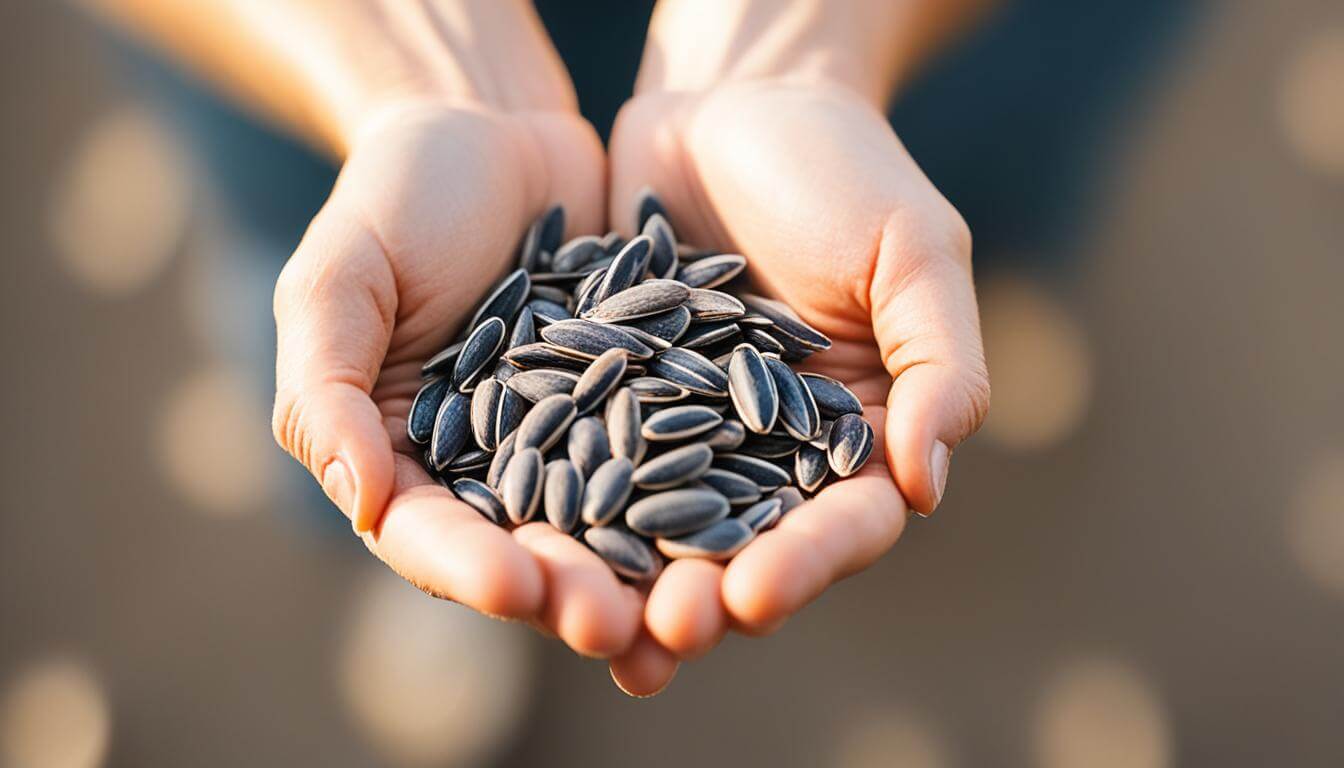
Creating Focal Points in Landscape Design
Strategically placed, sunflowers can accentuate the architectural features of a home or define spaces within the garden. These towering stalks and large flower heads serve as natural focal points, drawing the eye and giving structure to the green expanse. I often suggest incorporating differing heights and varieties from reliable sources like Gardeners Basics seed store to create a layered effect that adds depth to the design. Whether framing a walkway or standing sentinel at the corners of a yard, sunflowers hold a sculptural quality that enhances the aesthetics of your home's exteriors.
With their radiant colors and the ability to create compelling landscape designs, sunflowers are more than mere garden plants. They're an artist's brushstroke on nature's canvas, a joyous statement of life's vibrancy. Moreover, the added advantage of contributing to sunflowers and sustainable ecosystems makes cultivating these sunny blooms even more rewarding.
How Do Sunflowers Help the Environment
When you think of sunflowers, you might envision fields of vibrant color swaying in the breeze. But beyond their beauty, sunflowers are hard at work daily, playing a significant role in pollution control and soil health. As I delve into the many ways these plants contribute to environmental protection, it's clear that sunflowers are much more than a pretty face in the world of flora.
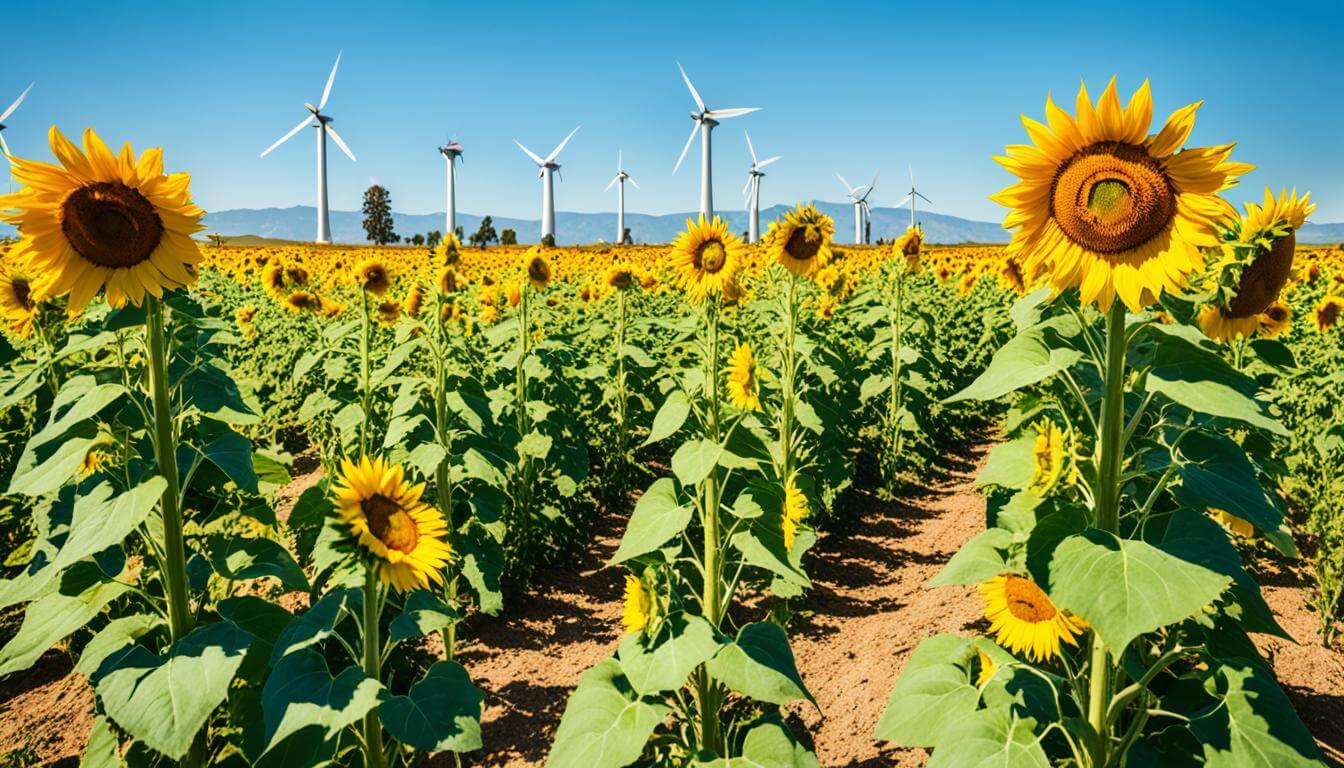
The wonders of sunflowers and pollution control are most notably seen through phytoremediation, wherein sunflowers are used to absorb toxins from the soil. This is incredibly impactful in areas where soil contamination is prevalent due to industrial waste or agricultural runoff. Sunflowers can extract hazardous elements such as lead, arsenic, and uranium, cleaning the land they grow.
Regarding sunflowers and soil health, these golden-giant roots dive deep into the earth, breaking up compact soil and enhancing aeration. This allows for better water infiltration and encourages beneficial microbial activity, creating a fertile ground for other plants to flourish.
How do sunflowers help the environment? By their very nature, they purify, replenish, and revive the ecosystem they grow in, showcasing their innate capacity to foster a positive environmental impact.
- Sunflowers act as natural air purifiers, reducing airborne pollutants and creating a cleaner atmosphere.
- Their potential for carbon sequestration is significant, helping to mitigate climate change.
- Their nectar-rich blooms attract pollinators, vital to maintaining healthy crop systems and natural plant growth.
Here's a reality that's not widely discussed: when it comes to combating climate issues, sunflowers are a superhero without a cape. They sequester carbon from the air, storing it in their tissue and transferring it into the soil as organic matter. In this way, they take on a dual role: beautifying landscapes while acting as a carbon sink.
It's a profound revelation that these icons of summer are such stalwart guardians of the environment. Each sunflower that dances in the wind is a testament to nature's ingenuity — an organic, living solution to some of our most pressing environmental challenges.
Sunflowers and Sustainable Ecosystems
In the tapestry of my garden, sunflowers stand tall, not just for their splendor but as vital threads woven into the fabric of a sustainable ecosystem. Embracing their role, these striking plants shine brightly as agents for environmental conservation and biodiversity. Let's explore how their existence promotes an equilibrium within our natural world.
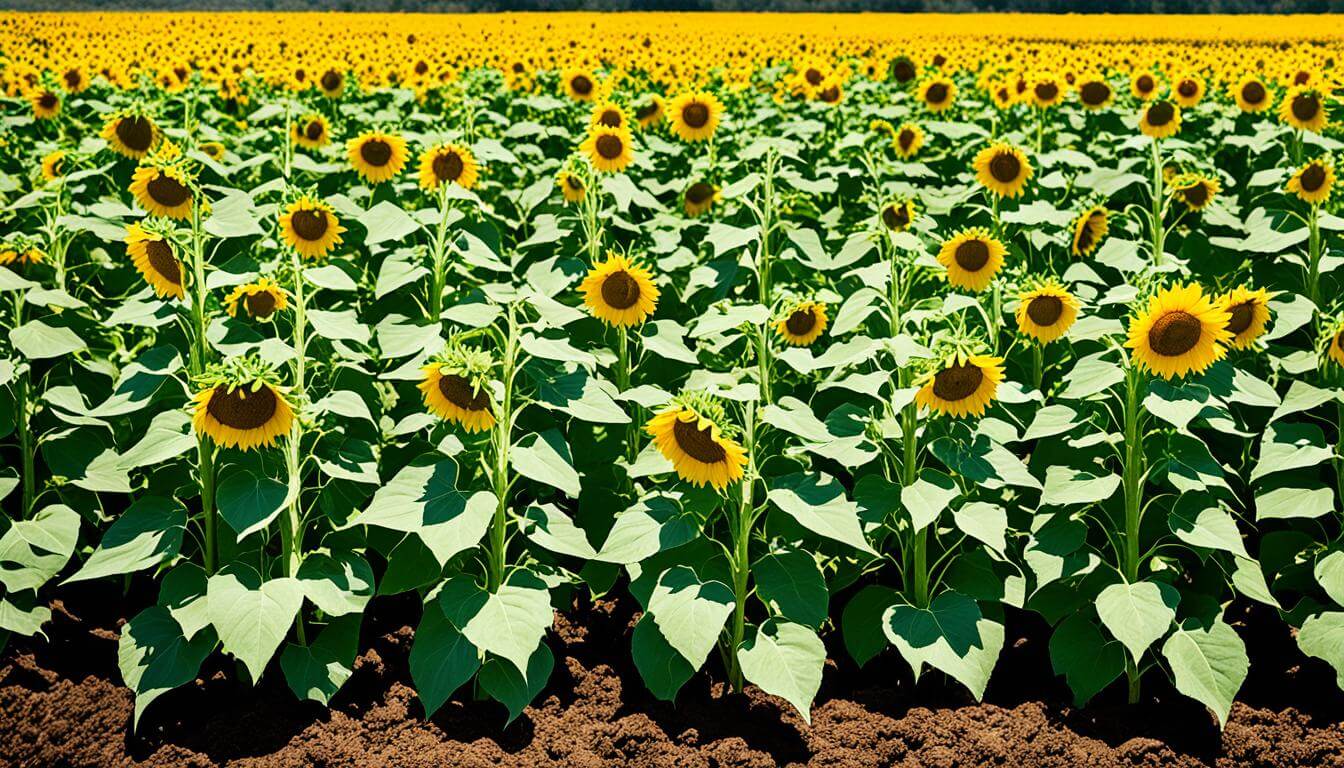
Sunflowers as Natural Pollinators
My appreciation for sunflowers deepens as I witness bees and butterflies gracefully navigate from bloom to bloom, indulging in the nectar and pollen they desperately need. This relationship between sunflowers and sustainable ecosystems is symbiotic; while sunflowers offer vital resources to pollinators, they, in turn, facilitate the reproductive success of plants by aiding in pollination. This natural process is instrumental in preserving the diversity of our local flora.
Supporting Local Wildlife with Sunflower Habitats
The role of sunflowers in supporting local wildlife extends beyond the allure of their vibrant petals. As naturalists observe, birds are frequent guests, relishing the seeds as an essential food source. Through sustenance and shelter, sunflowers become more than mere botanical specimens; they're a cornerstone for sunflowers for environmental conservation.
| Wildlife Species | Benefit From Sunflowers | Impact on Ecosystem |
|---|---|---|
| Bees | Pollen and nectar source | Promotes healthy pollinator populations |
| Butterflies | Nutrient-rich sustenance | Boosts biodiversity |
| Birds | Seeds for Nutrition | Supports avian species' survival |
| Small Mammals | Shelter and food | Encourages species diversity |
As I nurture my garden, I recognize that planting sunflowers is more than an act of beautification — it's a commitment to the environmental benefits of sunflowers that encompass far-reaching implications for our ecosystem's health and longevity.
Embracing Sunflowers for Environmental Conservation
As we culminate our journey through the wonders of sunflowers, it becomes increasingly clear that these blooms are not just a treat for the eyes but also a boon for the earth. Intertwined with the fabric of sunflowers and sustainable ecosystems, they exemplify how individual choices in our gardens can echo more considerable environmental virtues. By championing sunflowers, we take up the mantle of guardianship for our natural world, firmly planting the seeds of sustainability in our own backyards.
The intersection of sunflowers and biodiversity is a testament to their inherent ability to bolster the local fauna. Encouraging the cultivation of sunflowers is to support a tapestry woven with diverse biological threads, each strand strengthened by the presence of these towering blooms. In my experience, nurturing sunflowers has transcended beyond personal satisfaction to become a statement of sunflowers for environmental conservation.
I hope this exploration inspires others to see sunflowers as decorative plants and as symbols of environmental stewardship. Implementing sunflowers into our gardens can galvanize community movements and spark a collective commitment to conservation. Let us strive forward with the knowledge that each sunflower planted is a step towards a more resilient and verdant planet that future generations can enjoy and cherish.
Sunflower Planting Seeds | 5 Variety Pack

$9.95
Sunflower Planting Seeds For Planting - 5 Spectacular Varieties for a Sun-Kissed Garden Introducing our premium Sunflower Planting Seeds For Planting collection, featuring five stunning sunflower varieties that will bring vibrant color and unparalleled beauty to your garden. Transform your… read more
FAQ - How do Sunflowers Help the Environment
What are the benefits of growing sunflowers in my environment?
Sunflowers offer a range of environmental benefits, such as supporting biodiversity, aiding in pollution control, and improving soil health. They also bring joy and beauty to your surroundings, making them an excellent addition to any garden or landscape.
How do sunflowers contribute to environmental conservation?
These mighty flowers are potent agents for conservation. They act as natural pollinators, attract various wildlife, and play a significant role in sustainable ecosystems. Their ability to clean the soil and air contributes to a healthier environment.
Can planting sunflowers really help control pollution?
Yes, sunflowers have been used in phytoremediation projects to extract harmful toxins from contaminated soils. They possess a unique ability to absorb pollutants, which helps clean the environment.
How do sunflowers support local wildlife and biodiversity?
Sunflowers are a beacon for many pollinators, including bees and butterflies. They also serve as a food source and habitat for various creatures, crucial in maintaining and enhancing local biodiversity.
Are sunflowers effective in carbon sequestration?
Sunflowers contribute to carbon sequestration by capturing carbon dioxide from the atmosphere during photosynthesis. While their impact scale is smaller than trees, their fast growth rate still positively influences carbon absorption.
What makes sunflowers particularly good for soil health?
Sunflowers have deep root systems that help prevent soil erosion, break up compacted earth, and promote aeration. Additionally, they can extract nutrients and heavy metals from the soil, improving its overall quality for future plantings.
How can I incorporate sunflowers into my garden for aesthetic and environmental purposes?
Plant sunflowers to create stunning visual interest and be focal points in your landscape design. You can select beautiful seed varieties that enhance your garden's ecological value by choosing from reputable sources like the Gardeners Basics seed store.
How can I embrace sunflowers for environmental conservation in my community?
Start by planting sunflowers in your garden, then encourage others to do the same. You can also participate in or initiate community gardening projects focusing on sustainable practices, such as creating pollinator-friendly spaces with sunflowers at the forefront.
Wildflower, Perennial, & Annual Flower Seed Kit | 35 Variety Pack

$29.95
$49.95
35 Flower Seeds Variety Pack – Heirloom, Non-Hybrid, Non-GMO, Open-Pollinated – Perfect for Pollinator-Friendly Gardens Transform your garden with our 35 Flower Seeds Variety Pack, offering a stunning and diverse selection of heirloom, non-hybrid, and non-GMO seeds. Each variety in… read more



